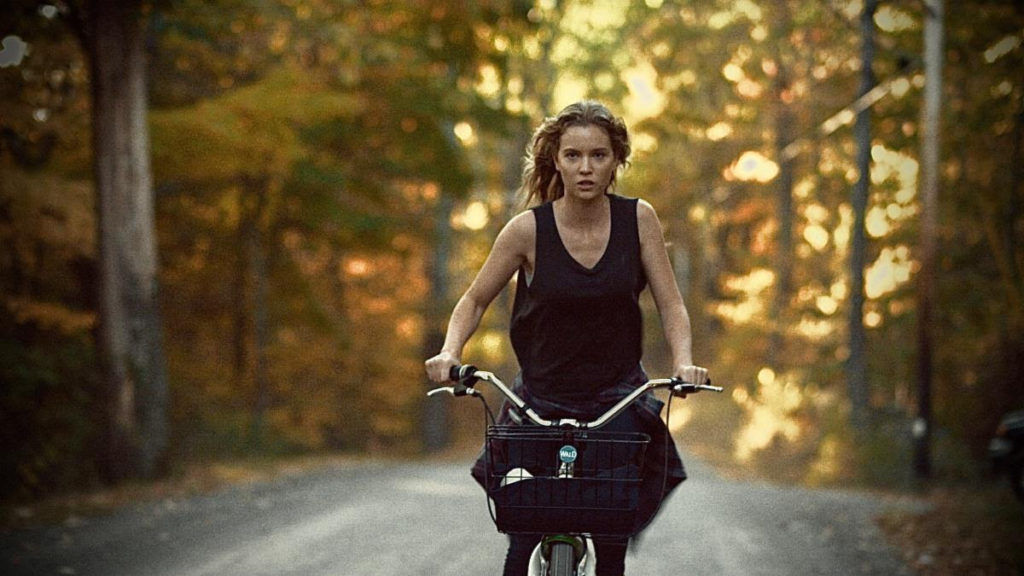
Content Warning: #LIKE and this article discusses suicide, stalking, and sexual assault
Social media and cyberbullying have been making their way into films for a while now. In #LIKE, written and directed by Sarah Pirozek, we watch as a teen takes matters into her own hands, moving to vigilantism to get justice—or some—semblance of for her sister.
In #LIKE, teen Rosie (Sarah Rich) is mourning the first anniversary of her younger sister Amelia’s death when she discovers that the mysterious man (Marc Menchaca) who sexploited and bullied her sister into committing suicide is back online trolling for new victims. After the authorities refuse to get involved, Rosie discovers a darker side she never knew she had as she takes justice into her own hands.
Pirozek’s film relies on the actors at the center of it. From Rosie abducting the man, to torturing him, and the man having to live through it, with only two actors for the bulk of the film, both need to be firing on all cylinders. While Rich’s portrayal of Rose is poignant and completely immersive and emotional, Menchaca’s performance as the Man is wooden at points – especially when Rosie is enacting her vengeance. This disparity in emotional energy in each scene makes it hard to fully become immersed in the narrative and honestly, truly find yourself on Rosie’s side. But that may be by design.
Truthfully, #Like feels too much like it’s attempting to hit the visceral experience that 2005’s Hard Candy hit with its young heroine taking on a pedophile. But, it pulls its punches by keeping the looming question of The Man’s innocence floating solidly above the narrative. In fact, the take on a feminist vigilantism-based film falls short because as the narrative continues to unravel, you begin to doubt The Man’s guilt. This makes the fact that Rosie grows increasingly violent less about retribution and makes it hard for you to fully buy into her plan.
Rosie becomes less like a heroine succeeding in exacting justice and more like a character becoming unhinged. And that is sad, especially given the explanation early on that online crime is not taken seriously by police. This point, while seemingly small, is the most important of the film because it opens up the door for Rosie to have a reason to take matters into her own hands. But all of the justification that is built after visiting the cops is gone as the film continues.
In fact, I don’t know if there was ever a point where I felt one hundred percent sure of The Man’s guilt. This is spurred by the guilt that Rosie has for not being extremely close to her sister before her death. This is my problem with the film. A story of abduction and retribution can work, even if it’s predictable. But in an attempt to subvert expectations, #LIKE loses its teeth and Rosie loses any ground she was standing on at the beginning of the film.
Overall, I want to care about the characters. I want Rosie to get justice for Amelia, but every emotion is undercut by the handling cloud of doubt that just can’t be corrected.
#LIKE is available now on VOD.
#LIKE
TL;DR
Overall, I want to care about the characters. I want Rosie to get justice for Amelia, but every emotion is undercut by the handling cloud of doubt that just can’t be corrected.






